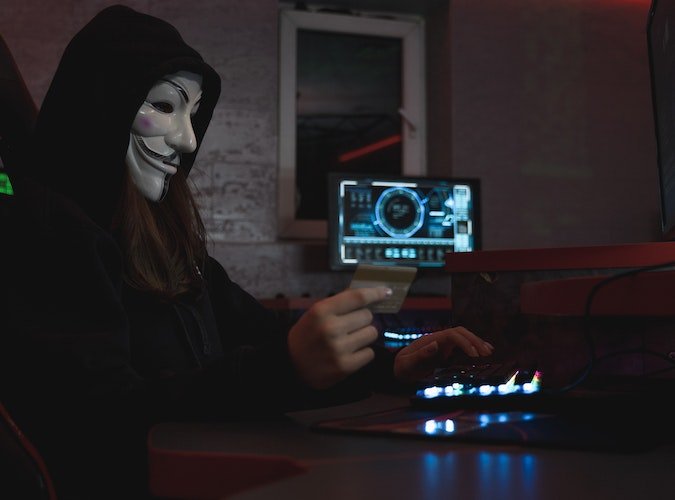
Travel is an important part of most people’s lives. It acts as a means of relaxation, rejuvenation, and discovery.
However, the last two years saw the COVID-19 pandemic change the way people lived their lives, and the ensuing lockdowns made travel almost impossible.
As the post-pandemic world emerges, people across the country are all set to pack their bags, and take off for a long overdue holiday.
And while there is a lot to look forward to, travelers also need to be mindful of the fact that cybersecurity risks do not take a vacation.
While online security awareness has increased tremendously, a growing number of travelers have reported falling victim to cyber fraud while on a holiday.
Ahead of the upcoming long weekends, Sophos shares 7 cybersecurity tips to keep in mind while traveling,
Make a backup before you set off
Always remember- “The only backup you will ever regret is the one you didn’t make.” Before jetting off for a vacation, remember to make a reliable back up of all data. What this also ensures is that the devices you are travelling with hold minimal sensitive data.
Encrypt mobile devices
Most contemporary mobile phones are now pre-encrypted; however, access to the underlying encryption and decryption keys requires a robust lock code.
Before travelling, it is a good practice to reset lock codes. When doing so, avoid using simple codes, or numbers that follow a sequence and can be easy to guess.
Be prepared to unlock devices when crossing international borders:
Countries with border checks often reserve the right to request you as a traveller to unlock your electronic devices and present them for inspection. This is in the interest of security, and can be a long process at times.
Some countries may even request for a forensic copy, which means that every sector of the device is copied, including disc sectors containing previously deleted data. Additionally, they may request for proof of residential address as well as your social media handles.
While you can choose to refuse to share this data, you can then expect the country you are attempting to visit to follow the “My Kitchen, My Rules” policy. In such cases, do check the entry rules before planning to visit, and take stock of what devices and data you carry along.
Use public Wi-Fi with caution
When using public Wi-Fi, always remember to access websites and apps that follow proper encryption systems. While browsing, ensure the websites being visited begin with https://. This scrambles the data before it leaves your laptop or phone and (theoretically) only unscrambles it after it arrives at the other end.
While accessing the internet, always remember, that if services demand the installation of a special digital certificate, this would lead to browsing activity being spied on.
Another good option to avoid using public Wi-Fi is to consider purchasing a local SIM card with a pre-paid data plan for the duration of your visit.
Avoid using kiosk PCs in airports or hotels:
Unless unavoidable, limit your use of PC kiosks at airports and hotels. While availing such services, do not login to personal social media accounts when browsing. When using kiosks, the element of trust comes in to play, and you must trust the company – be it the hotel, airport, and technicians that access these devices.
In contrast to a hacked Wi-Fi access point, which can only sniff out data (hopefully encrypted) between them and its destination, a hacked kiosk PC may have unrestricted access to all the data you have sent and received. Kiosk PCs are also largely unencrypted, and as a result, they may track every keystroke one types, take screenshots of everything one does, and retain an exact copy of everything one prints.
Be cautious about spy cams in hotel rooms and guest houses:
Unfortunately, spy cams hidden in guest quarters are a reality today. Sometimes, these can be relatively easy to spot after searching the room. Very often though, spy cams are tiny enough to hide almost anywhere and won’t always appear on the property’s public Wi-Fi network.
Sadly, not finding a spy camera doesn’t mean there isn’t one. What you can do is search the room for prominent hiding places like clocks, duplicate smoke alarms, electronic “gizmos,” etc.
In case there is a camera in the room, photograph it, and also photograph the property to show that there has been no damage caused that could be used as an excuse or a counterclaim by the perpetrator. Additionally, you should report the incident to the local police, the hotel’s head office, or the rental agent.
Seek company permission before carrying official devices:
It is always advisable to obtain the company’s approval before traveling with official laptops. If they say “No”, then the matter remains closed, and you should leave it behind. In case you are carrying it, then be sure to inform your IT team and managers about the destination you will be visiting, and when you intend using the device.
During a holiday, carrying more data than necessary could be dangerous. Therefore, it is essential to take care of your data and devices in order to enjoy a fun-filled, incident-free vacation.





